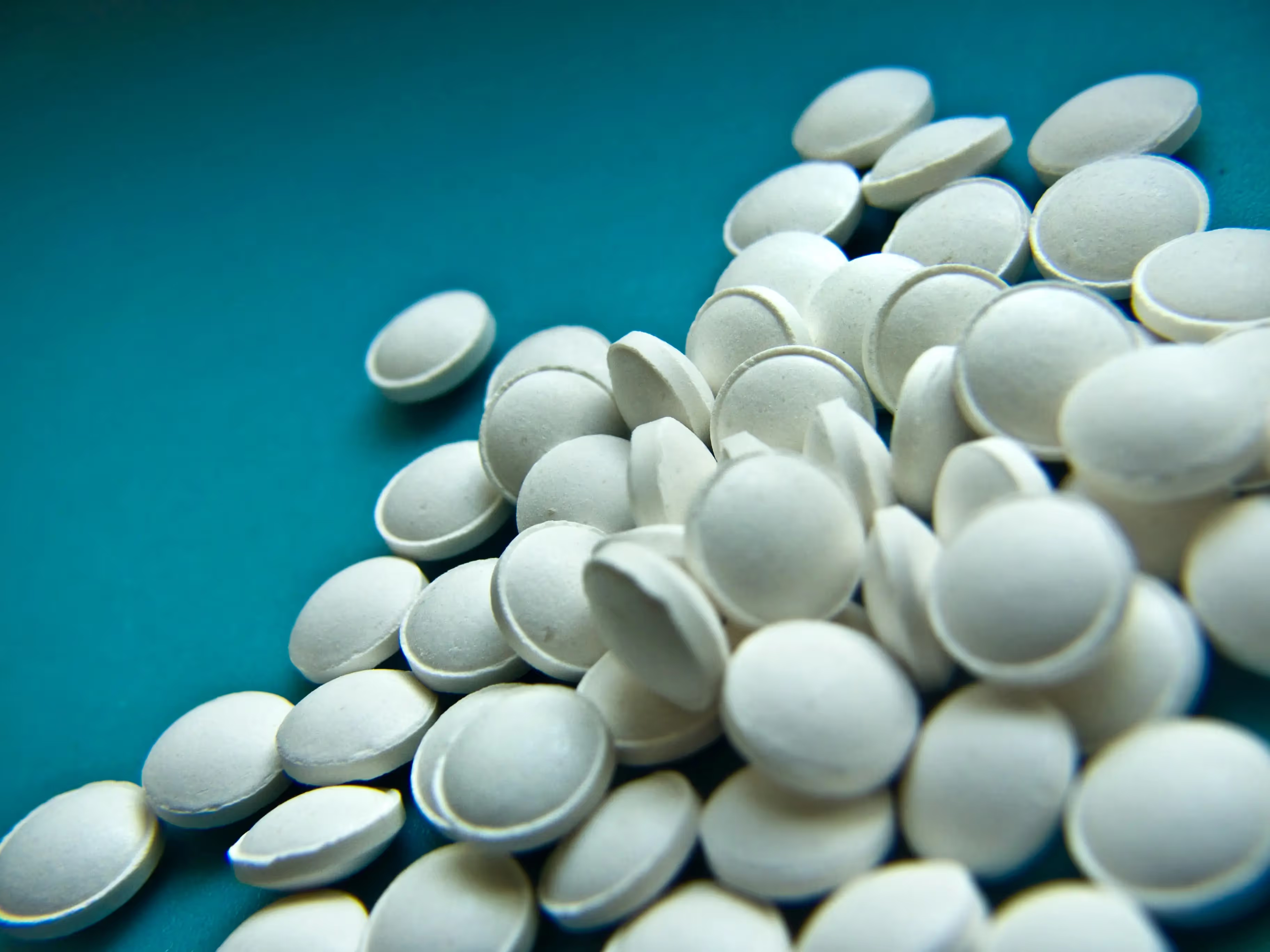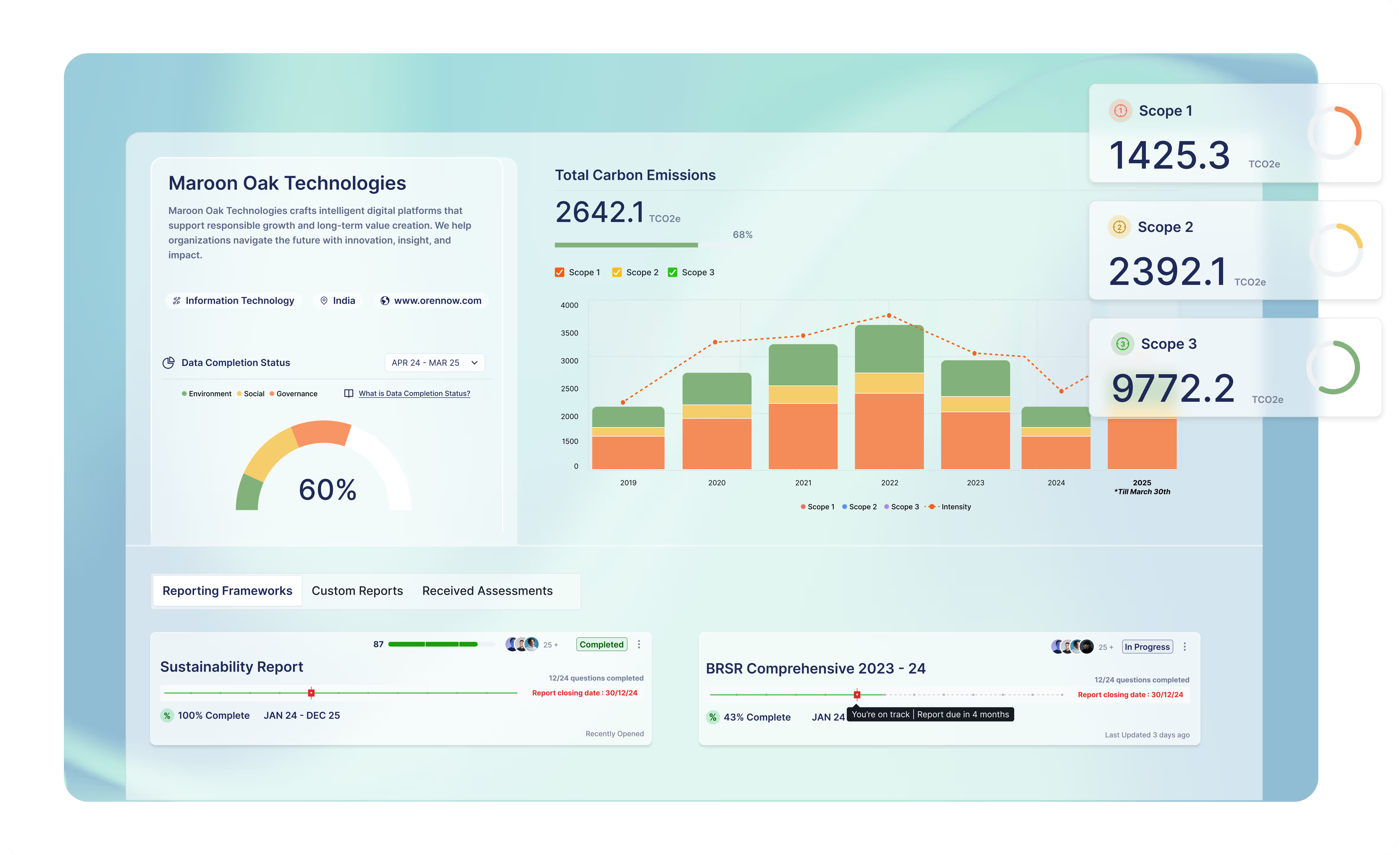Why ESG is Crucial for Pharma Companies

What is ESG and why is it relevant to businesses?
ESG is one of the most widely used and trending buzzwords today. It is receiving a lot of attention worldwide and we expect this trend to continue in the following years. We anticipate increasing focus on business sustainability from investors, employees, customers, and other stakeholders' regulatory organizations, suppliers & clients.
ESG is a framework that puts together three aspects Environment, Society, and Governance, predominantly used to determine how conscious a business is of its impact on the environment and society. Climate Change is undoubtedly the most significant issue humanity is facing. To combat climate change, Sustainability is the closest answer. ESG focuses on sustainability initiatives that a business must take to minimize its negative impact on the environment, strengthen commitment towards the community and maintain integrity, thereby boosting profitability and long-term growth.
Sustainability is a journey that businesses need to take to make the right impact. ESG is the way to start this journey. For laying out ESG goals, relevant committees, and teams need to be created that will drive the cause. These teams will assess, improve, as well as create and implement new and effective ESG practices and initiatives.
- ESG is highly in line with any business and its objectives. It is a winner in the long run.
- ESG performance can give businesses a competitive advantage among their peers.
- It increases the chances of success and long-term growth of the business.
- It helps establish or increase brand value.
- It reduces operational costs and increases profitability.

The pharmaceutical industry and its impact on society and the environment
For decades, pharmaceutical companies have been relentlessly working for mankind. They play a crucial role and their contribution to the well-being of society has been immense. In addition to producing large quantities of basic medicines, they have the capability and potential to research, innovate and manufacture treatments and therapeutics for life-threatening and/or rare diseases and chronic conditions. The pharmaceutical industry has greatly contributed to the increase in life expectancy for men and women across the world.
Medicines are a simple, quick, and often cost-effective solution to many health problems. They challenge life-threatening diseases and also largely reduce human suffering by managing pain, symptoms, or side effects of treatments, helping to relieve discomfort. With the ever-improving and revolutionary pharmaceutical industry as the backbone, the world has fought so many health crises throughout history. Fighting off the COVID pandemic has been possible due to the swift actions and efforts of the pharma industry.
However, this industry poses a threat to the environment with its energy-intensive operations and not-so-pleasant and conscious practices. Not only that, improper waste disposal and high GHG emissions also contribute to negative environmental impacts. Pharmaceutical production processes release various chemicals and by-products into the environment. One of those is discharging antibiotics into the environment which can promote antibiotic resistance in people. People living in areas near manufacturing facilities are vulnerable to pharmaceutical pollution as their water sources are subject to getting contaminated with chemical waste produced by the industry in question.
Importance of ESG in the pharmaceutical industry
While only the top 1000 listed companies are mandated by the Indian government to release ESG reports - BRSR, many others are voluntarily driving towards sustainable and ESG practices. The pharmaceutical industry too needs to get on the bandwagon and become more proactive toward sustainability. Collaborative and dedicated efforts towards climate change, social well-being, fairness, and transparency within the company are the need of the hour.
Let's have a look at some of the ESG goals that are relevant to the pharmaceutical sector.
1. Focus on energy efficiency

The pharmaceutical industry uses a considerable amount of energy in its operations. Monitoring and analysing energy consumption is of utmost importance. Being energy efficient not only helps reduce operational costs but also to become a little gentle towards the environment and minimizes the harsh impact the business might cause to it. Innovative and energy-efficient technologies and practices can be strategically put to use to reduce energy wastage and the cost of production and operations.
2. Reduce emissions and Carbon footprint

Pharmaceutical processes, end products, and supply-chain need to be closely monitored for any inadequacies that might be responsible for a direct or indirect impact on the environment. Few medicines and medical devices have an especially high environmental impact. For instance, even today, inhalers for lung conditions still contain hydrofluorocarbons, which are potent greenhouse gasses. Discrepancies of this and higher order need to be dealt with as a priority. Going green and evaluating cleaner and eco-friendly practices can be of great value and can ultimately help reduce carbon footprint.
3. Waste generation and disposal

This industry is known to generate a large amount of waste - chemical, and plastic. Plastic waste can be thought to be recycled, but often a large portion of it ends up in dumping sites due to challenges in waste segregation and sorting. Though recycling is a great solution to this problem, this involves dedicated and collaborative efforts from the medical sector and waste management authorities. Plastics used in the medical sector can be designed to be recycling-friendly. Although plastic is an indispensable part of the medical industry, research and innovation can help find better and more practical alternatives.
Chemical waste is also a prominent contributor to environmental damage. Its disposal is an eminent aspect while considering proper waste management. Chemical waste tends to contaminate food and water sources, affecting both humans & animals. Optimized disposal of waste generated by the pharmaceutical industry could help meet the environmental sustainability goal.
4. Manufacturing, Distribution, and Transportation

Using eco-friendly methods for manufacturing, distribution, and transportation can help reduce carbon emissions to a great extent. Going green and using cleaner fuels to power the production facilities, for example powering the facility with solar energy can not only reduce costs but also increase efficiency. Simultaneously, opting for sustainable practices and methods to package and distribute the end products can help. For example, a reduction in single-use plastic packaging and increased use of eco-friendly and recycled material instead can go a long way in reducing the severe impact on the environment. Likewise, for distribution and transport, sustainable options can be considered.
5. Social responsibility

a. Price gouging
Drug pricing has been of concern for a few years. It has been seen that a few drugs have been priced high out of greed and competition in the market. Price gouging affects everyone, especially patients who can barely afford medicines in routine. This practice needs to be curbed. Pharmaceutical companies can play their part by being ethical and fair and giving back to the community.
b. Access to medication in poor and underdeveloped countries
Poor countries suffer from a lack of food, let alone the affordability of medicines and medical treatments. Pharma companies can do their bit for society and people by making medicines available on a non-profit basis in countries where affordability is a question. This enables healthcare to be revolutionized for everyone regardless of economic status.
c. Well-being of employees
It's the responsibility of the company to ensure the well-being of its people at work. Regardless of employees at facilities, production sites, or corporate offices, each one of them deserves good working conditions. Employee satisfaction is a must and a healthy and safe environment must be maintained. Diversion and inclusion in the workplace are some key aspects that can be taken care of.
d. Invest in healthcare awareness programmes and projects
Pharmaceutical companies can initiate and join health awareness programmes. It is important to educate society about the importance of health and hygiene. Menstrual hygiene, early detection of ailments, washing of hands, the importance of immunization, and the importance of good nutrition can be some of the focus areas.
e. Governance
Being fair and transparent about company policies helps in moving forward. Pharma companies should take thoughtful measures towards inequality in their organisations. Business ethics and integrity should not be compromised. Fair decision-making and compliance with the law are important. Operating morally and ethically is required to retain customer and social interest. Tax anomalies and inhuman behaviour should be avoided as it can lead to severe circumstances.
Benefits of ESG for Pharma Companies
- Enables the business to contribute towards a cleaner environment, help conserve energy and give back to the community. At the same time, leaving the environment more liveable and sustainable than it ever can be, for present and future generations.
- Helps increase the face value and reputation of a business, thereby increasing financial opportunities and appealing to potential investors.
- Helps decrease operational cost and profitability by evaluating and opting for sustainable strategies to power and run the business.
- Increases credibility for customers, investors, and other stakeholders.
- Helps a business owner or leader to make a significant change to the efficiency of one's business, making it eco-friendly, profitable, and sustainable.
Oren helps chemical & pharmaceutical companies measure, disclose & improve their ESG metrics. Please reach out to schedule a demo today!





